Some dogs love water and dive into the first puddle they see. Others, on the other hand, are terrified of it. In any case, the pool can be a dangerous place for our furry friends. So what precautions should you take to avoid accidents?
Also, is the pool a safe place for dogs? Are there any risks for dogs who enjoy swimming?
And for us... Is it safe to swim with Fido? What do we need to know about hygiene?
Finally, what are the risks for the swimming pool? What precautions should be taken?

The benefits of water and swimming for dogs
What a joy for swimming dogs to quench their thirst in the fresh water!
Swimming is a great way to keep your dog cool during the hot summer months. It can prevent heatstroke and dehydration.
And then, like for us, swimming helps keep us fit. And it's great therapy for dogs who can't do much walking due to arthritis or injury.
But can dogs swim safely in a pool? And is hygiene at risk?

My dog in the pool... What about hygiene?
You treat your pool against all bacteria, algae, and other microorganisms that could proliferate in the water. To do this, your weapons are good filtration and a disinfectant treatment. Thanks to this, you and your children can splash around happily in a pool that remains healthy and clear. Yes, but what about the dog?
A dog is less clean than you (in principle). An animal also takes few showers (in principle still!) and it carries a lot of impurities in its fur: dust, dead skin, parasites... And all these impurities end up in the pool once the dog is in it.
This makes chlorine work harder to disinfect the pool. This is how chloramine, a harmful byproduct of chlorine for humans (and dogs!), is produced, unless you opt for a more natural water purification system, such as ionization.
Your pet also tends to shed hair. This hair gets sucked into the filtration system. This clogs the filter and makes filtration less effective.
The solution:
- Good hygiene for your dog (regular baths)
- A quick preventative shower and brushing before swimming
- Use disposable pre-filters for the skimmer. This will prevent clogging of the filter.
- Pay extra attention to the treatment of your pool
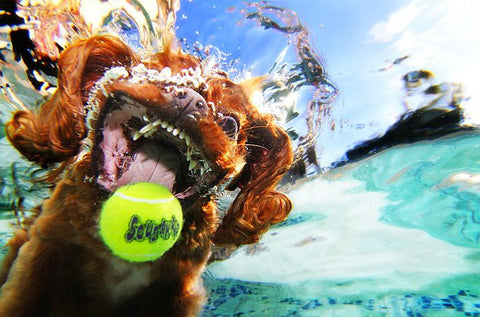
Can the dog damage the pool?
Yes, dogs can damage your pool if you have a pool with a liner. Your dog's claws can cause irreversible damage, especially when trying to get out of the water.
Shell pools are more durable, but scratches can be visible. The most suitable pools are those made of hard masonry, ceramic, etc.
The solution:
- Slippers for your dog?
- A special access ramp for the dog

Dog vs. Chlorine? Are Chemicals Dangerous for Dogs?
Your dog is giving you his imploring look and his miserable eyes because he dreams of coming to swim with you in the pool... But you wonder if that would be good for him.
Indeed, the swimming pool isn't necessarily the best place for dogs. The risk is poisoning and irritation.
If you use chlorine, you should not allow your dog to drink the pool water (easy to say, I know!), especially if you have a salt water pool. Salt water can cause gastric problems (vomiting, diarrhea, etc.), which in turn can lead to dehydration or an increase in sodium levels in the blood (hyponatremia).
Most dogs keep their heads above water when swimming. If they don't, be careful not to swim too often to avoid water poisoning. The trick: give them something to drink before getting in the water. This will make them less tempted to try the pool water. Also, keep a bowl of water next to the pool.
Also, depending on the products you use (and especially the dosage), water can be harsh on the skin and immune system. Indeed, dogs have more fragile skin than we do. Chlorine is a powerful oxidant and is not very good for the skin and respiratory system of animals.
The solution:
- Treat your pool with a product gentler than chlorine or avoid long swims in the pool
- Pay attention to the dosage of chemicals in the water
- After a swim in the pool, a shower is necessary to rinse your dog and dry him thoroughly (even if it's hot). Dry his ears, armpits, and groin thoroughly.
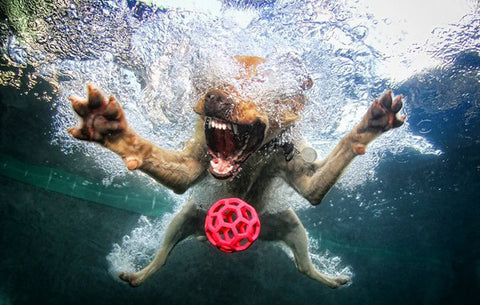
Dogs and drownings
Many dogs drown every year… It's important to secure your pool to prevent accidents. Whether your dog loves or hates the water, the danger is present. If you leave your dog unattended, he risks drowning.
People think that all dogs can swim, but that's not the case. Some dog breeds can't swim at all.
Examples of dog breeds that find swimming difficult: basset hounds, Welsh corgis, dachshunds, Sealyham terriers, Boston terriers, Scottish terriers, pugs, bulldogs, greyhounds, Doberman pinschers, etc.
Stay alert when your dog is around the pool. It's important to watch for signs of exhaustion. A dog won't tell you he's tired...and he may continue to play in the water even though he's exhausted.
On that note, have a good swim with your dog!

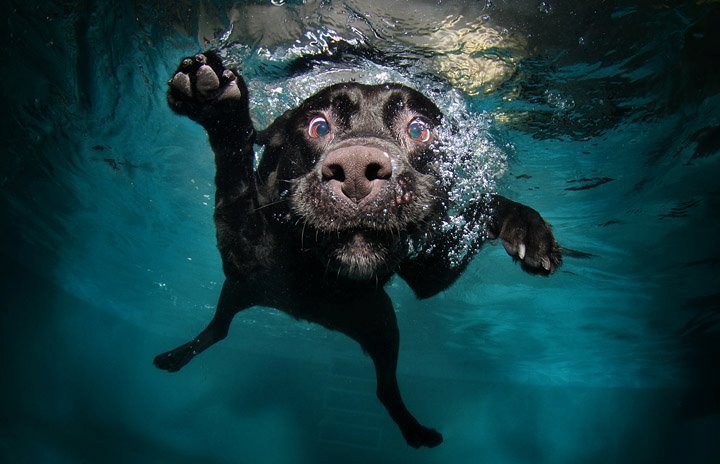
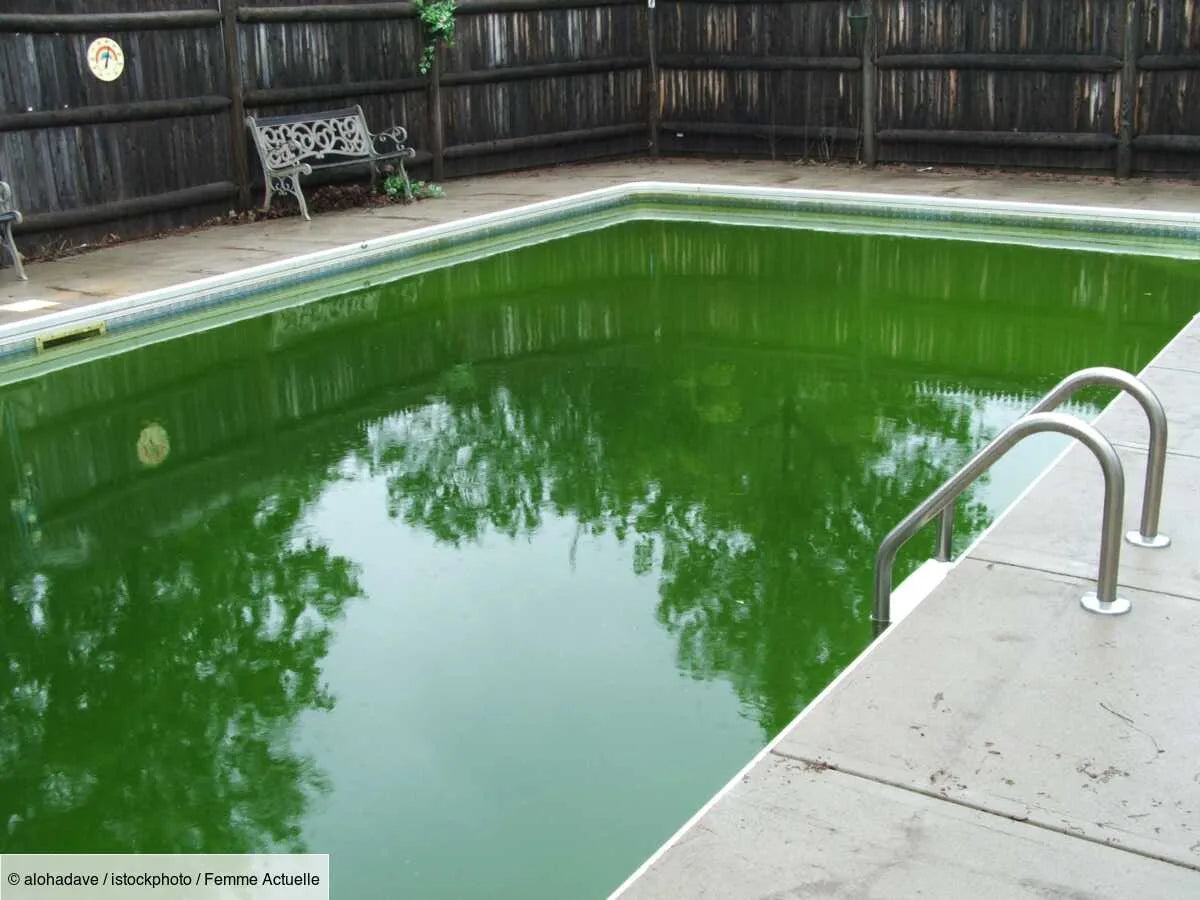
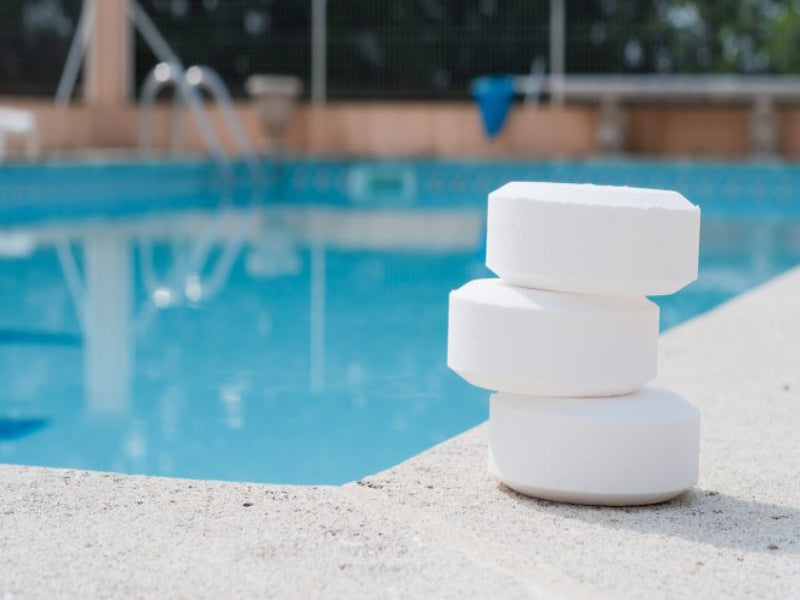




Leave a comment
This site is protected by hCaptcha and the hCaptcha Privacy Policy and Terms of Service apply.